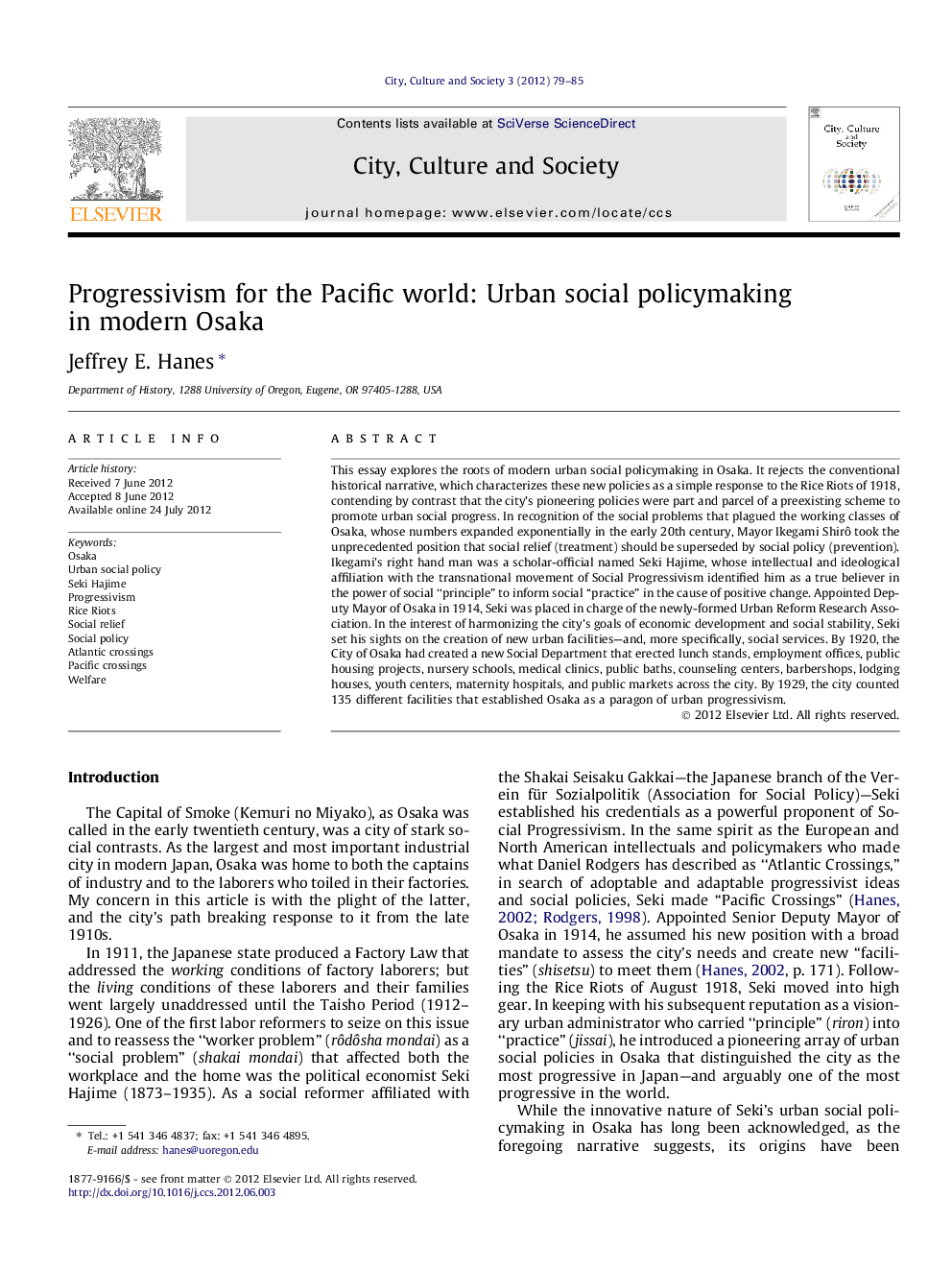| کد مقاله | کد نشریه | سال انتشار | مقاله انگلیسی | نسخه تمام متن |
|---|---|---|---|---|
| 5048339 | 1371001 | 2012 | 7 صفحه PDF | دانلود رایگان |

This essay explores the roots of modern urban social policymaking in Osaka. It rejects the conventional historical narrative, which characterizes these new policies as a simple response to the Rice Riots of 1918, contending by contrast that the city's pioneering policies were part and parcel of a preexisting scheme to promote urban social progress. In recognition of the social problems that plagued the working classes of Osaka, whose numbers expanded exponentially in the early 20th century, Mayor Ikegami Shirô took the unprecedented position that social relief (treatment) should be superseded by social policy (prevention). Ikegami's right hand man was a scholar-official named Seki Hajime, whose intellectual and ideological affiliation with the transnational movement of Social Progressivism identified him as a true believer in the power of social “principle” to inform social “practice” in the cause of positive change. Appointed Deputy Mayor of Osaka in 1914, Seki was placed in charge of the newly-formed Urban Reform Research Association. In the interest of harmonizing the city's goals of economic development and social stability, Seki set his sights on the creation of new urban facilities-and, more specifically, social services. By 1920, the City of Osaka had created a new Social Department that erected lunch stands, employment offices, public housing projects, nursery schools, medical clinics, public baths, counseling centers, barbershops, lodging houses, youth centers, maternity hospitals, and public markets across the city. By 1929, the city counted 135 different facilities that established Osaka as a paragon of urban progressivism.
⺠The City of Osaka pioneered urban social policymaking in Japan. ⺠Deputy Mayor Seki Hajime embraced Euro-American Progressivism in his policymaking. ⺠Seki set Osaka's urban social policymaking in motion prior to the Rice Riots of 1918. ⺠Between 1918 and 1929, the City of Osaka opened 135 different social facilities. ⺠Osaka urban social policy rivaled that of the most progressive cities in Europe and North America.
Journal: City, Culture and Society - Volume 3, Issue 1, March 2012, Pages 79-85